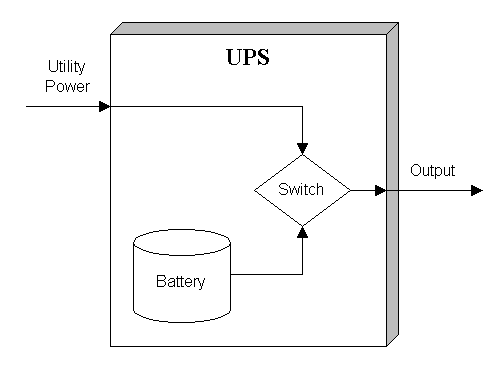A perfect scenario for electronic devices is to run smoothly even when there is no electricity. In order to protect the internal circuitry, a constant and never ending power supply is needed. Because of certain technical adjustments, the power supply is usually cut off for irregular intervals. It’s the case when a battery power supply is needed to support the electric device. Two well known solutions for battery based power are the inverter and uninterrupted power supply. The uninterrupted power supply, or shortly UPS, is a more preferable option for computers, while the inverters are used for various house appliances. The primary purpose of both the uninterrupted power supply and the inverter is the same – to provide back-up power. During power shortages, these electronic devices are well protected from damages and are able to work with alternative power resources. However, there are few differences between the uninterrupted power supply system and the inverter.

Features Of The Inverter:
- Depending on the size, inverter system can be either a standby or portable.
- The working principle of the inverter includes conversion of mechanical into electrical energy.
- The reliability of the back-up power usually depends on the size of the inverter system.
- In case of power failure, there is an option for automatic switch or manual switch to turn on the inverter system.
- During the operation there may be emissions of some harmful gases in the air.
- Most inverter systems create noise while working.
- The inverter system provides back-up power for longer period, and can also serve as an alternative power source.
Features Of Uninterrupted Power Supply:
- The uninterrupted power supply system is usually portable, due to its smaller size.
- The working principle of the UPS systems include conversion of AC- alternation current into DC – direct current, which is stored as chemical energy in the batteries. This energy later is converted to direct current which is transferred to the electrical device.
- The reliability of the uninterrupted power supply system usually depends on the operation of its batteries.
- The uninterrupted power supply systems have inbuilt automatic switches to provide fast power back-ups in case of failure or disruption in the primary supply.
- There is no gas emission during the working operation.
- The uninterrupted power supply system doesn’t create loud noise while working.
- Uninterrupted power supply system provides back-up power supply for shorter duration. But generally it is enough to ensure safe shut-down of the devices connected with the system.
Knowing the basic features and the differences between the UPS and inverter system can help you choose the most appropriate device that will satisfy your back-up power needs.


















